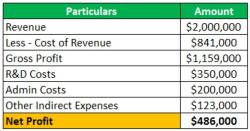How do I save money being frugal?
Frugal living is all about making conscious and intentional choices to save money while still maintaining a good quality of life. Here are practical tips on how to save money through smart spending and embrace a frugal lifestyle:
Create a Budget:
- Start by creating a detailed budget that outlines your income and expenses. This will give you a clear picture of where your money is going and where you can cut costs.
Prioritize Needs Over Wants:
- Distinguish between your needs (essential expenses like housing, utilities, groceries) and wants (discretionary spending like dining out, entertainment, and luxury items). Focus on covering your needs first.
Shop with a List:
- Make a shopping list before heading to the grocery store or any other retail location. Stick to your list to avoid impulse purchases.
Buy Generic Brands:
- Opt for generic or store brands when shopping for groceries and household items. They are often just as good as name brands but cost less.
Use Coupons and Discounts:
- Look for coupons, discounts, and cashback offers when making purchases. There are many apps and websites that can help you find deals.
Cook at Home:
- Eating out can be expensive. Cooking meals at home not only saves money but also allows you to control the ingredients and portion sizes.
Limit Dining Out:
- Reserve dining out for special occasions and try to reduce the frequency. You can save a significant amount by enjoying restaurant meals less often.
Pack Your Lunch:
- Prepare and pack your lunch for work or school instead of buying meals. This can save a substantial amount over time.
Reduce Energy Usage:
- Lower your utility bills by being mindful of energy consumption. Turn off lights when not in use, unplug devices, and consider energy-efficient appliances.
Cut Cable TV:
- Evaluate your TV-watching habits and consider switching to streaming services, which are often more cost-effective than traditional cable or satellite TV.
Cancel Unnecessary Subscriptions:
- Review your subscriptions for streaming services, magazines, or apps. Cancel those you rarely use or can do without.
Buy Used or Secondhand:
- Consider purchasing used items such as clothing, furniture, electronics, and vehicles. Thrift stores and online marketplaces are great places to find deals.
Plan Shopping Trips:
- Plan your shopping trips strategically to minimize travel costs. Combine errands to reduce fuel expenses.
Practice Minimalism:
- Embrace a minimalist lifestyle by decluttering and simplifying your possessions. This can lead to fewer purchases and less spending.
DIY (Do It Yourself):
- Learn basic DIY skills for home repairs, gardening, and simple crafts. This can save you money on hiring professionals.
Buy in Bulk:
- For non-perishable items like toiletries and household goods, buying in bulk can often lead to lower per-unit costs.
Negotiate Prices:
- Don't hesitate to negotiate prices when making significant purchases, especially when buying from private sellers or at flea markets.
Use Public Transportation:
- If possible, consider using public transportation, carpooling, or biking to save on fuel and transportation costs.
Plan No-Spend Days/Weeks:
- Challenge yourself to have days or weeks with minimal spending. This can help break spending habits and boost savings.
Save Windfalls:
- Whenever you receive unexpected money, such as a tax refund or a bonus, consider saving a portion of it instead of spending it all.
Remember that frugal living doesn't mean depriving yourself of everything enjoyable; it's about making conscious choices to prioritize savings and financial security. Over time, these habits can help you build a strong financial foundation and achieve your financial goals.
Saving Money through Frugality: A Comprehensive Guide
Frugality is the practice of living a simple life and avoiding unnecessary spending. It is a great way to save money and reach your financial goals.
Here is a comprehensive guide to saving money through frugality:
- Create a budget and track your spending. This will help you to identify where your money is going and to see where you can cut back.
- Make a list of your needs and wants. This will help you to prioritize your spending and to avoid impulse purchases.
- Shop around for the best deals. Compare prices at different stores and online before you buy anything.
- Consider buying used items. You can often find high-quality used items at a fraction of the cost of new items.
- Cook at home instead of eating out. Eating out can be expensive, so cooking at home is a great way to save money.
- Reduce your energy consumption. Turn off lights and appliances when you are not using them, and unplug electronics when they are fully charged.
- Use coupons and discounts. There are many ways to save money on groceries and other purchases by using coupons and discounts.
- Take advantage of free activities. There are many free activities available in your community, such as parks, libraries, and museums.
The Art of Frugal Living: Effective Strategies to Save Your Money
Frugal living is not about deprivation; it is about making smart choices with your money. There are many effective strategies to save money without sacrificing your quality of life.
Here are a few tips:
- Plan your meals ahead of time. This will help you to avoid impulse purchases at the grocery store.
- Buy in bulk. This can be a great way to save money on items that you use frequently.
- Grow your own food. If you have the space, growing your own food is a great way to save money on groceries.
- Make your own cleaning products. You can save money by making your own cleaning products with simple ingredients like vinegar and baking soda.
- Borrow or rent instead of buying. If you only need something for a short period of time, consider borrowing or renting it instead of buying it.
- Get rid of unused items. Sell or donate items that you no longer use. This will help you to declutter your home and to make some extra money.
Financial Success: Achieving Your Goals by Embracing Frugality
Frugal living can help you to achieve your financial goals, such as saving for a down payment on a house, paying off debt, or retiring early.
Here are a few tips for achieving financial success through frugality:
- Set financial goals. What do you want to achieve with your money? Once you know your goals, you can start to make a plan to reach them.
- Automate your savings. Set up a direct deposit from your paycheck into your savings account. This will help you to save money without even having to think about it.
- Pay off debt. Make a plan to pay off your debt as quickly as possible. This will free up your money so that you can save for other goals.
- Invest for the future. Once you have paid off debt and saved some money, you can start to invest for the future. This will help you to grow your wealth over time.
Frugal living is a great way to save money and reach your financial goals. By following the tips above, you can develop a frugal lifestyle that works for you and your family.













